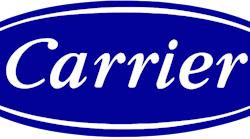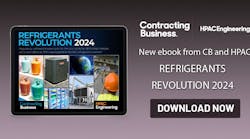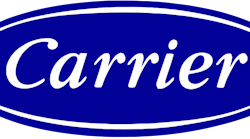PRESS RELEASE
WASHINGTON, Oct. 30, 2023 /PRNewswire/ -- The American HFC Coalition applauds the U.S. Department of Commerce for initiating an anti-circumvention inquiry to determine whether imports of Chinese hydrofluorocarbons (HFCs) are circumventing the 2016 antidumping duty order on HFC blends.
Since 2016, Chinese exporters and importers have continuously attempted to evade antidumping duties and continue sending unfairly traded HFCs to the American market. Chinese producers have shipped Chinese HFC components, including R-125, R-32, R-134a and R-143a, to India, Turkey, Malaysia, and now Mexico in an effort to circumvent antidumping duties.
- This marks the ninth time that the U.S. Commerce Dept. has investigated allegations of circumvention of anti-dumping orders since 2016.
Chinese exporters and importers also ship HFC blends, such as R-410B, that do not have any commercially approved use, so that these unapproved HFC refrigerant blends can be simply reblended after importation. The decision by the U.S. Department of Commerce to investigate this strategy with respect to R-410B from Mexico is one more important step to stop these unfair trade practices.
The Commerce Department's latest initiation constitutes the ninth anti-circumvention inquiry initiated since 2016. Previously, Commerce found that "unfinished" HFC blends from China were circumventing the antidumping order. It similarly found that HFC blends using Chinese components blended in India were circumventing the order. And, it found that imports of a patented blend, which were reblended in the United States after importation, were circumventing the order.
More recently, in July of this year, the Commerce Department also initiated several anti-circumvention inquiries to address the staggering 340% increase in the volume of R-410B imports originating in China or blended in Turkey from Chinese components. Such imports can be reblended at a fraction of the cost of manufacturing HFCs. For example, R-410B is easily reblended into R-410A, which can then be sold in the U.S. market. As a result, U.S. HFC manufacturers suffer depressed prices, declining sales revenues, and lost market share.
The same circumventing activity is now occurring in Mexico.
Imports of HFC blends from Mexico increased by more than 1,600% between 2022 to 2023 even though Mexico does not produce the HFC components (i.e., R-125 or R-32) used to produce these HFC blends. At the same time, Mexican imports of HFC components from China have surged. With these Chinese-origin components, Mexican blenders were able to ship a large volume of R-410B to the United States in 2023, which are subsequently reblended in the United States into products covered by the HFC blends order.
The American HFC Coalition trusts that this inquiry will uncover the relentless efforts by Chinese exporters and importers to escape the discipline of the antidumping duty order by flooding the U.S. market with unfairly low-priced HFC refrigerants and will remedy the harm to the domestic industry by applying the full extent of the law. We expect that the U.S. Department of Commerce will proceed quickly with its investigation and will issue a final determination within 300 days.
#####
Formed in 2015, the American HFC Coalition includes Amtrol, Inc., West Warwick, RI; Arkema, Inc., King of Prussia, PA; The Chemours Company FC LLC, Wilmington, DE; Honeywell International Inc., Morristown, NJ; Hudson Technologies, Pearl River, NY; Mexichem Fluor Inc., St. Gabriel, LA; Worthington Industries, Inc., Columbus, OH; and District Lodge 154 of the International Association of Machinists and Aerospace Workers.









